EVA Air is competitive in all of their airline cabins. While their cabin colour tones are bland and their premium economy experience can be hit-or-miss (as writer Ethan realised), they have reverse herringbone seats in business class on their 777s (which they fly on a majority of their longhaul flights now that they’ve retired all of their 747s), which I consider to be one of the world’s business class hard products. In addition to that, they have a plush premium economy seat, though they do have a 3-4-3 configuration in economy class on the 777, which has sadly become the industry standard.
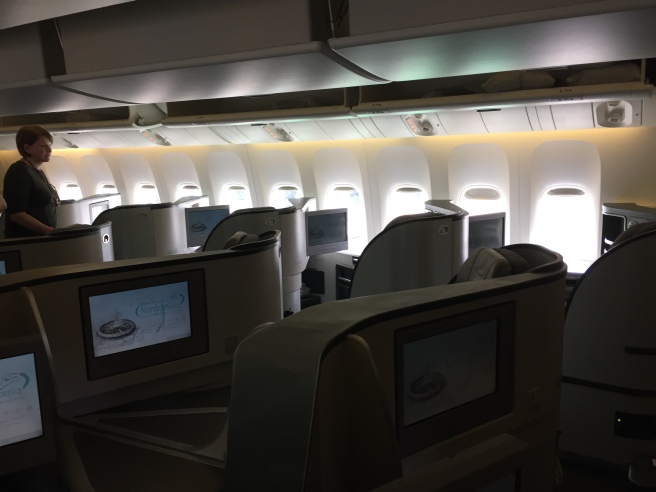 EVA Air Boeing 777 Business Class Cabin
EVA Air Boeing 777 Business Class Cabin
All of EVA Air’s US routes are now flown with 777s, though as of this October, it won’t only be out of Taipei where you’ll get to fly an EVA Air plane to the U.S. on a longhaul flight.
According to Airlineroute, Air New Zealand has leased an EVA Air 777 to fly their Auckland-Los Angeles route on select flights. This will replace their NZ 6 frequency out of Auckland, and their NZ 5 frequency out of Los Angeles (they have two daily flights, and the other one won’t be affected – both frequencies are nighttime flights from both destinations). The affected route will run as follows:
Air New Zealand 6 Auckland to Los Angeles dep. 19:30 arr. 12:40
Air New Zealand 5 Los Angeles to Auckland dep. 22:30 arr. 06:15 (+2)
The catch is that this change will only appear on these specific days:
October 2018: 28, 30
November 2018: 02, 04, 06, 10, 15, 17, 24, 26, 29
December 2018: 01, 03, 06, 08, 10, 12, 14, 17, 20, 22, 24, 27, 29, 31
January 2019: 01, 02, 04, 07, 09, 11, 14, 17, 19, 21, 24, 26, 28, 31
February 2019: 02, 04, 07, 09, 11, 16, 18, 23, 25
March 2019: 01, 03, 08, 10, 12, 14, 16, 18, 22, 24, 26, 29
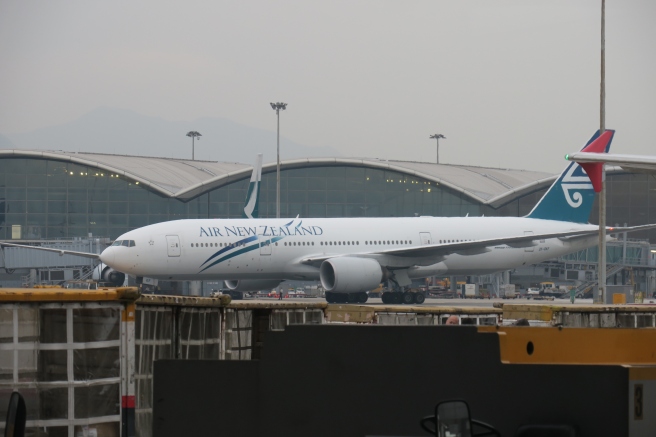 An Air New Zealand 777, which passengers flying NZ6/5 on the above dates will NOT see
An Air New Zealand 777, which passengers flying NZ6/5 on the above dates will NOT see
What this means for affected passengers
In my opinion this represents a net upgrade for passengers. Business class passengers will be happiest, as they’ll get to fly in reverse herringbone seats, which I consider some of the world’s best business class seats. They’re spacious, private, and have more storage space than most other business class configurations out there.
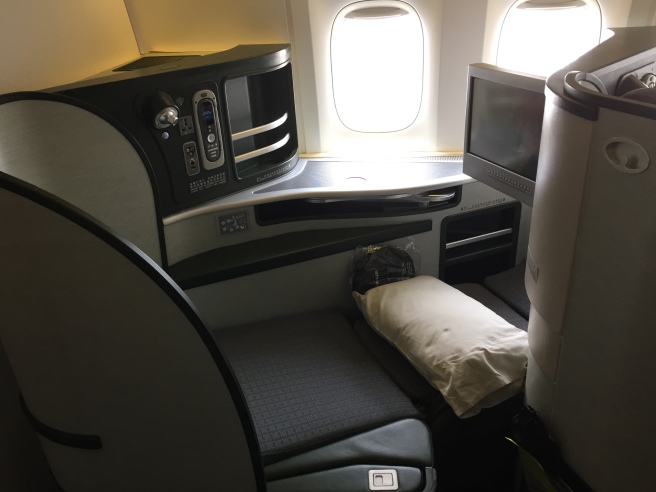 EVA Air Boeing 777 Business Class
EVA Air Boeing 777 Business Class
This is much better than Air New Zealand’s 777 business class product, which, while much more aesthetically pleasing, features herringbone seats (I’ve flown a similar configuration on Virgin Atlantic, one of Air New Zealand’s closest partners, and didn’t like it).
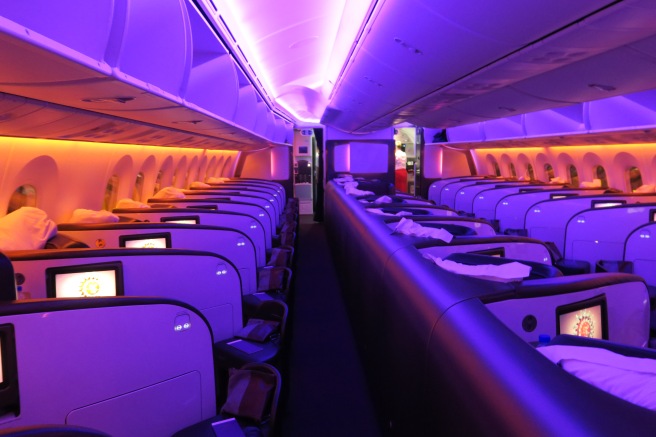 Virgin Atlantic 787 Upper Class (seat identical to Air New Zealand’s)
Virgin Atlantic 787 Upper Class (seat identical to Air New Zealand’s)
EVA Air’s premium economy seats feature less seat pitch than Air New Zealand’s 777s, and they also don’t feature a footrest. I also much prefer Air New Zealand’s cabin aesthetics, though otherwise the seats are quite similar.
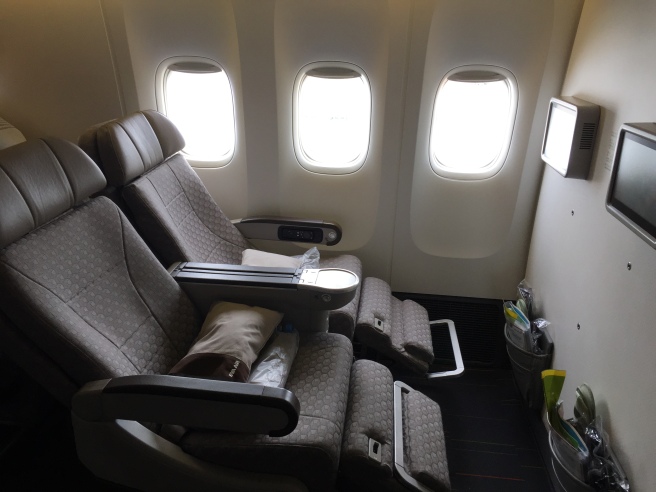 EVA Air Boeing 777 Premium Economy
EVA Air Boeing 777 Premium Economy
While EVA Air has 777s with 3-4-3 economy class products, it’s worth noting that the Auckland-Los Angeles route will be run by an EVA 777 with a 3-3-3 configuration in economy class. This represents a substantial upgrade width-wise from Air New Zealand’s own 777s, which feature a 3-4-3 configuration in economy class. The only “losers” here are those booked in Air New Zealand’s Skycouch (a service that allows parties of up to 4 people seated in economy to purchase blocks of 3 seats that can be converted into a flat bed-like surface), who will most likely be rebooked on Air New Zealand’s other frequency or refunded outright, as EVA’s 777s don’t feature this.
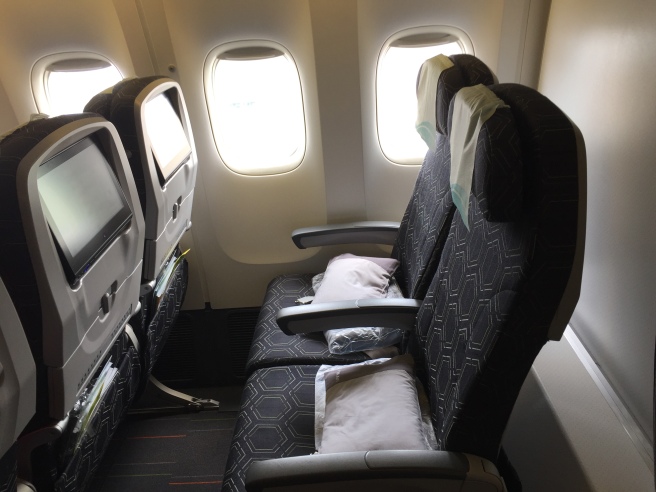 EVA Air Boeing 777 Economy Class
EVA Air Boeing 777 Economy Class
What this means for capacity
Air New Zealand’s own 777s feature 44 herringbone business class seats, 54 premium economy seats, and 244 economy seats. Meanwhile, the 777 they leased from EVA features 38 reverse herringbone business class seats, 64 premium economy seats, and 211 economy seats. Overall this represents a capacity reduction of 29 seats, especially due to the much less dense economy configuration.
On fully booked cabins during these dates, we might be seeing 8 very angry business class passengers downgraded to premium economy, or 10 very happy economy passengers upgraded to premium economy. For both of these cabins we see a capacity reduction, whereas we see a capacity increase for premium economy (EVA Air has a very large premium economy cabin on their first-generation 777s).
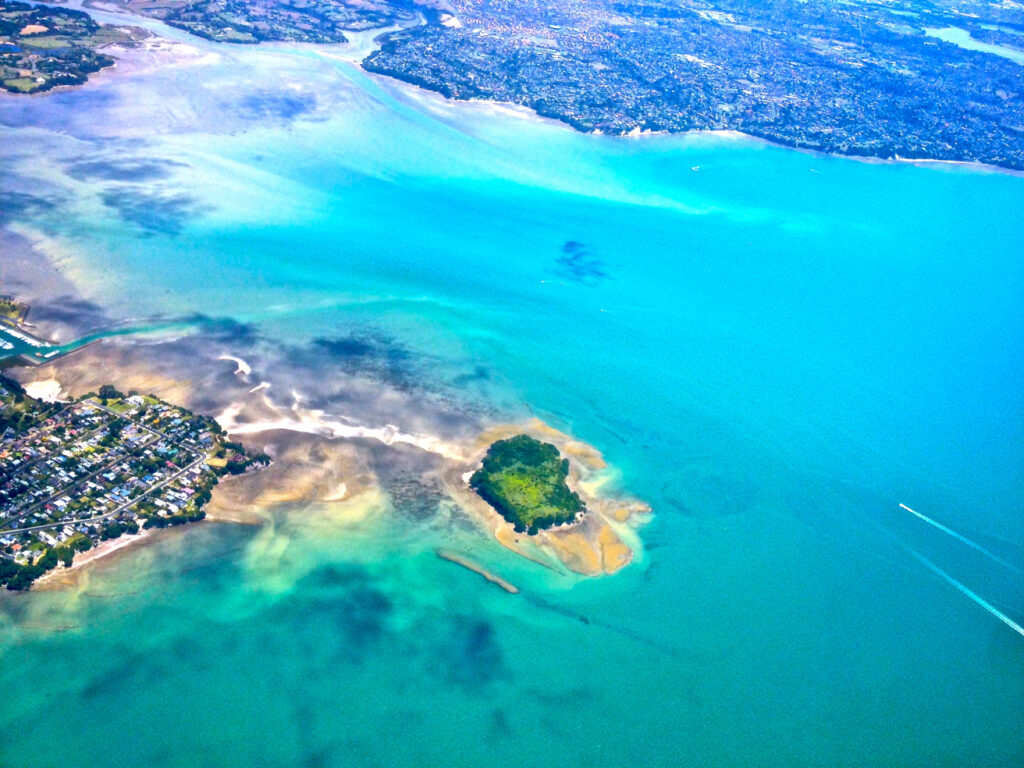 View of Auckland Airport
View of Auckland Airport
Bottom Line
Overall, business class on this route goes from a subpar business class hard product to an excellent business class hard product, premium economy goes from an excellent hard product to an okay hard product, and economy on the route goes from a dense 3-4-3 configuration to a much more spacious 3-3-3 configuration. So I’d consider this a positive change on the consumer front.
As for the airline, while there is a net capacity reduction, I’m always quite happy when alliance partners cooperate with one another to fulfil excess demand for planes. It’s quite fascinating that Air New Zealand decided to operate the EVA 777 on their flagship longhaul route, since it means that some of their most premium-revenue passengers aren’t experiencing their “own” product. Regardless, when in times of need, it’s always good when partnering airlines are able to show off each other’s products. Hopefully this change comes across as a positive one for passengers booked on this flight.
One thing the Airlineroute source didn’t indicate is if this was a wet lease (meaning that EVA crew would operate the flight) or a dry lease (meaning that Air New Zealand crew would operate the flight). I’ve heard great things about crew on both airlines (even though I didn’t really feel the same on an Air New Zealand longhaul in economy many years ago), so I wouldn’t be too concerned about that. If this ends up being a dry lease, hopefully Air New Zealand crew are excited about the change too, and the EVA 777 isn’t too hard of an aircraft to work with.
Is anyone booked on this Air New Zealand frequency between Auckland and Los Angeles?

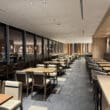
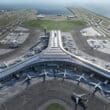
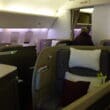
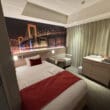
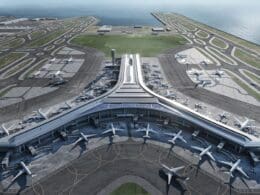
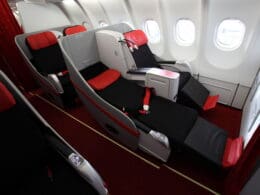
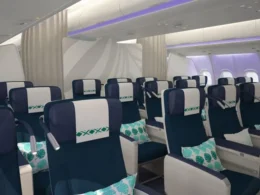
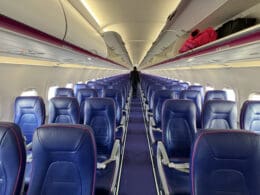
This is a great ppost